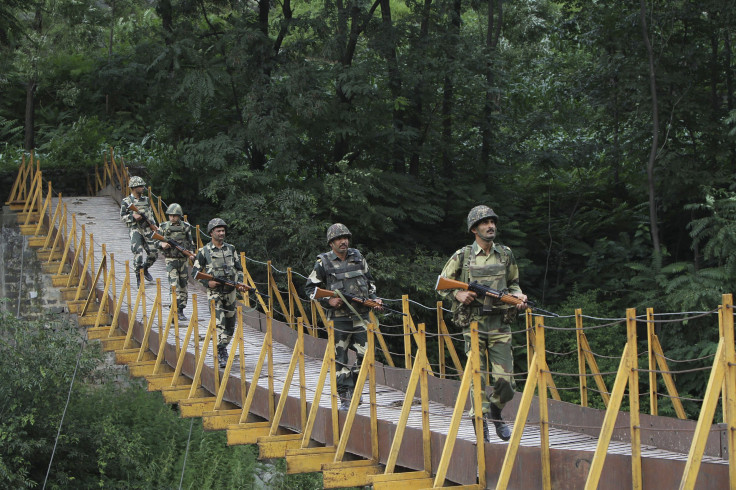India-Pakistan Border Tensions Swell As Ceasefire Breaches Become Frequent

Disrupting a period of rapprochement, skirmishes along the disputed border between India and Pakistan are reportedly on the rise, sparking tensions between the two nations, which have accused each other of perpetrating fresh violence.
Violations of a ceasefire agreement have become increasingly frequent in recent months, with the latest instances reported on Sept.3 and Sept.7, when Indian troops came under attack from across the border, according to Press Trust of India. Indian officials alleged that Pakistani troops targeted Indian posts and civilian areas along the border in Poonch district in the Indian-administered region of Jammu and Kashmir.
India’s Border Security Force, or BSF, will deploy unmanned aerial vehicles, or drones, along the border to maintain vigil, Indian Express reported on Sept.9, citing a senior BSF official, following media reports that Pakistan had deployed drones along the border near the western Indian state of Rajasthan.
Clashes had been far less frequent in recent years in the border regions of the disputed state of Kashmir, which has been mired in conflict since 1947 when the state of Pakistan was created and the two countries gained independence from their British colonizers. A ceasefire has been in place along the de facto border since November 2003.
However, bilateral talks were temporarily suspended following an attack on Nov. 26, 2008 by Pakistani militants in Mumbai. In November 2012, India executed Ajmal Kasab, the lone surviving gunman from the 10-member squad that carried out the attack, which killed 166 people, including six Americans.
There also are fears that militants may step up their activities in the border regions between India and Pakistan after the U.S. pulls out its troops from Afghanistan in 2014, and people living on both sides of the border could be forced to flee the hostilities, Washington Post reported from Srinagar, in Indian-administered Kashmir.
“In three or four months, the people fighting in Afghanistan or Pakistan could come here,” Sheikh Younis, 42, a resident in downtown Srinagar, told the Post. “People are very concerned about it. What’s going to happen after 2014?”
Banned militant outfits based in Pakistan such as Lashkar-e-Taiba, which carried out the 2008 terrorist attacks in Mumbai, have vowed to focus their attention on Kashmir, and on Sept. 6, its founder Hafiz Mohammad Saeed, who lives in Lahore and has a $10 million bounty offered by the U.S. for his arrest, denounced India as a terrorist state and declared that he will fight for the “liberation of Kashmir.”
India’s Prime Minister Manmohan Singh and his Pakistan counterpart Nawaz Sharif may cross paths on the sidelines of their visit to New York at the end of September, although Islamabad and New Delhi have been delaying a public announcement of their likely encounter in the U.S.
The meeting is primarily intended to portray to the international community that talks between India and Pakistan have not broken down, Indian newspaper Hindustan Times reported, citing Indian officials.
Tensions between the two nuclear-armed neighbors have also been rising after Pakistan passed a resolution in the National Assembly on Aug. 13 -- one day before the country celebrated its Independence Day -- condemning “unprovoked aggression” by the Indian army across the border. India responded to this move with a counter-resolution passed in its parliament on Aug. 14 condemning Pakistan.
“India is not a threat to Pakistan, but terrorists nurtured by Pakistan are to the entire region,” the resolution stated.
“There should be absolutely no doubt in anyone’s mind, including members of the Pakistan National Assembly, that it was the Pakistan Army that was involved in unprovoked attack on an Indian Army patrol on our side of the LOC (Line of Control) on August 6,” the resolution said, referring to the killing of five Indian soldiers in the Indian-administered region of Kashmir on Aug.6.
© Copyright IBTimes 2025. All rights reserved.






















